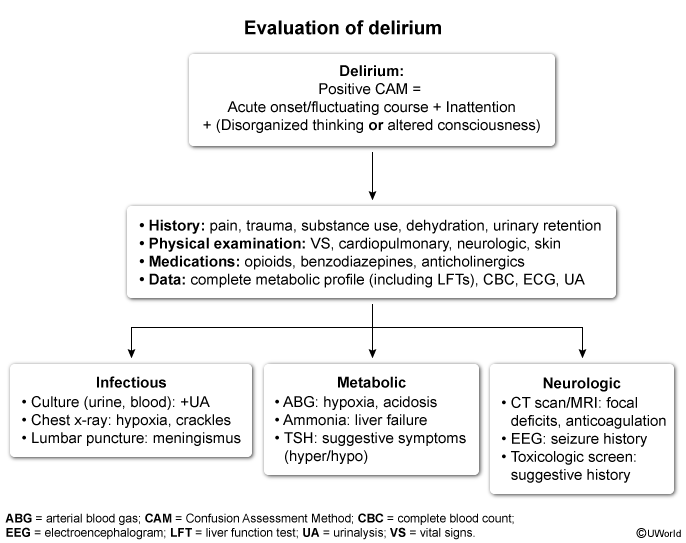Delirium
Article Sections
Introduction
Delirium is an acute neuropsychiatric syndrome characterized by a fluctuating (ie, waxing and waning) course of impaired attention, arousal, and cognition that develops acutely in the setting of medical illness or intoxication/withdrawal states. It is sometimes called "acute confusional state" or "encephalopathy" and frequently occurs in hospitalized patients, particularly older adults and those with underlying dementia or previous stroke (likely due to reduced cognitive reserves). Delirium indicates acute brain failure and should be considered a medical emergency given its associated morbidity and mortality.
Risk factors and precipitating factors
Delirium involves various modifiable and nonmodifiable risk factors:
- Age: Advancing age, especially age >65, particularly in the setting of frailty.
- Cognitive impairment: Preexisting dementia or cognitive dysfunction, including vascular dementia (from strokes), Alzheimer disease, and Parkinson disease.
Continue Learning with UWorld
Get the full Delirium article plus rich visuals, real-world cases, and in-depth insights from medical experts, all available through the UWorld Medical Library.
Unlock Full AccessFigures
